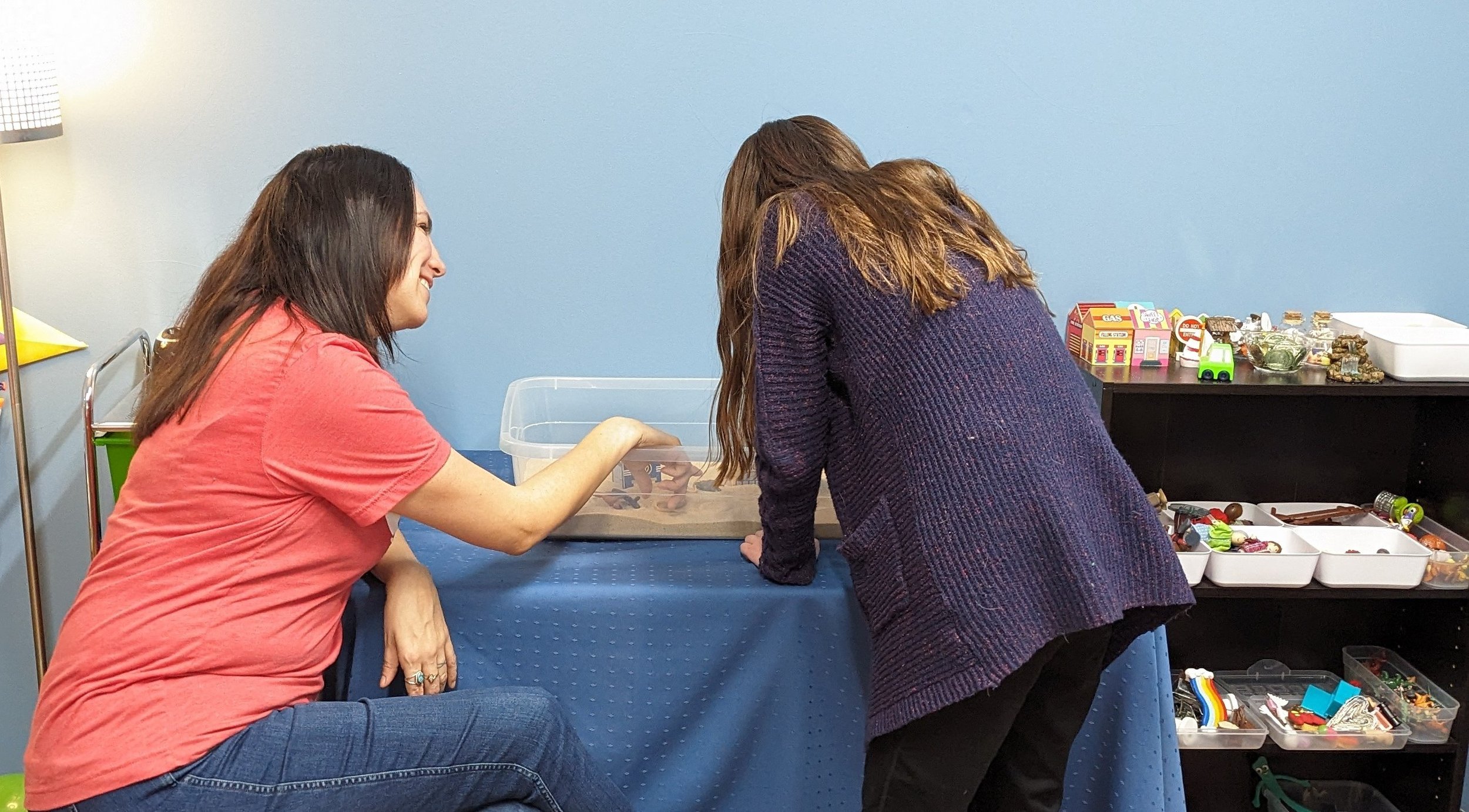What is Play Therapy?
Play Therapy is not the same as spontaneous, regular, everyday play. While this play is a natural and essential part of the developmental process, Play Therapy is a systematic and therapeutic approach. Play therapy is an approach to child psychology that honors nonverbal elements of play & imagination in helping children express their emotions & experiences. Often used to treat mental health disorders or adverse life experiences in children, play therapy is the predominant form of therapeutic treatment for younger populations across Western culture.
Play Therapy incorporates a growing number of evidence-based practices and techniques. Plenty of research has been done to validate play therapy as an effective tool for targeting mental health challenges in children & teens. Due to its child-centered and nonverbal elements, it has been demonstrated to treat a wide range of issues including anxiety, trauma, and challenging life transitions. And because it uses the language of play, this form of therapy can be particularly useful for children as young as 3 who may be nonverbal or have developmental disabilities. The aim of play therapy is to enhance a child’s understanding of their emotions and improve behaviors. And research shows that play therapy is highly effective when it comes to developing strong social, communication, and problem-solving skills—ultimately allowing children to create more positive associations with the people and environment surrounding them.


